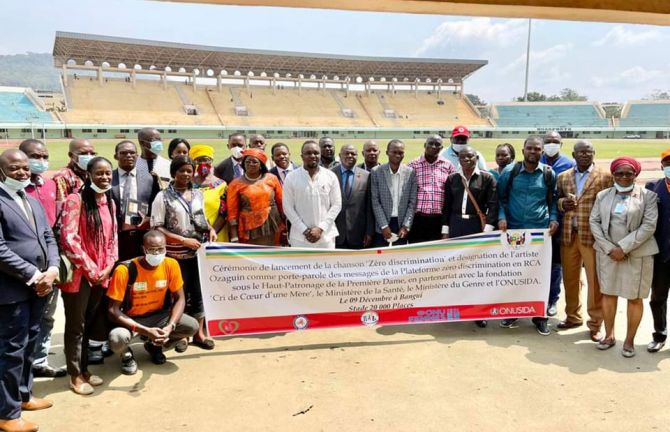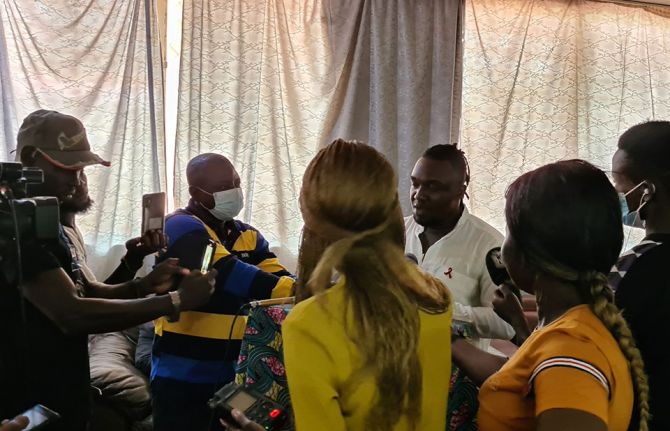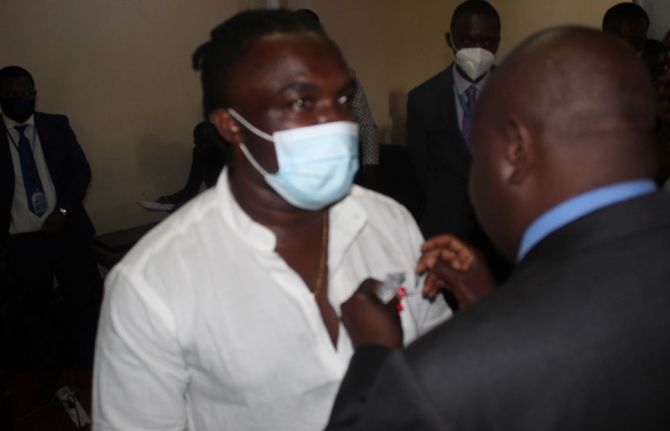



Feature Story
A song to stop discrimination
17 December 2021
17 December 2021 17 December 2021Humanity is behind in eradicating AIDS by 2030. This delay is not due to a lack of knowledge, capacity or means, but to structural inequalities such as stigma and discrimination which are obstacles to access health services.
Viruses such as HIV or COVID-19 do not differentiate between people, but societies do. They stigmatize and discriminate against people living with HIV, mostly out of ignorance, because they are afraid of the disease.
Discrimination remains one of the biggest battlefields in the Central African Republic and this is why the country was the first in the world to join the Global Partnership to fight against all forms of HIV-related discrimination and stigma.
To make this Global Partnership a reality, a Zero Discrimination Platform was established. It is composed of about thirty partners representing ministries, the National AIDS Council, UN agencies, technical and financial partners, civil society, human rights organizations and other organizations. With UNAIDS support, the Platform called on Ozaguin, the "king of Central African rumba" to use music and art to convey its messages of tolerance and compassion.
At the launch ceremony for Ozaguin's new song against discrimination, which took place on 9 December 2021 at the 20,000-seat stadium in Bangui, he was also nominated as a spokesperson for the Platform.
On behalf of the First Lady of the Central African Republic, the Minister of Health and Population invited every one, and in particular all institutions and influential personalities, not only not to discriminate, but also to fight against discrimination and stigmatization. "We must collectively report discrimination and stigma as soon as we see it and set an example. Discrimination kills. It exacerbates emergencies and fuels pandemics," said Minister Pierre Somsé.
The leadership shown by communities that are victims of discrimination and stigmatization remains a source of inspiration. Their determination, courage and vision are a star in the firmament, as demonstrated by the moving testimony of Ms. Christine Wilikon, a member of the national network of people living with HIV (RECAPEV) during the ceremony. "The first reactions to knowing my positive HIV status were dismay, and a desire to end my life. Rejection by my family members amplified my mental and social disorientation. But the support and advice provided by my parish priest gradually led to my social reintegration through income-generating activities such as petty trade, agriculture and market gardening.”, Christine shared. Her brave words were received with a standing ovation. She urged all Central Africans to put an end to feelings of guilt and shame, and to get tested to know their HIV status and if necessary, take the treatment which is free.



